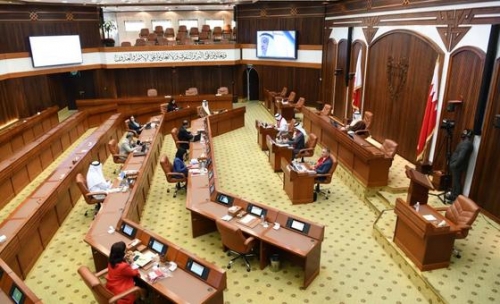Shura calls for review of translator regulation law
Mixed feedback from Shura Council members has led to a reconsideration of a proposed law to regulate Bahrain’s translator profession. During yesterday’s session, concerns over the law’s scope led members to call for further review and revisions to better fit the proposal with industry standards. In a concluding vote, the Shura Council supported returning the draft law to the Legislative and Legal Affairs Committee for further refinement.
The proposal seeks to establish rules governing translation work, reserving it for licensed translators and approved offices. Supporters argue that “the translator profession is no less essential than other regulated trades”, particularly as Bahrain requires Arabic for official transactions. The law was put forward by members Redha Faraj, Dr Jehad Al Fadhel, Khalid Al Maskati, Dr Mohammed Al Khuzai, and Dr Abdulaziz Abul. Doubts However, some members raised doubts, suggesting the proposal is unnecessary and may even upset current practices in Bahrain and abroad. They pointed out that translation is usually handled by mutual agreement, with alternate translations or expert input available in court when disputes arise.
Critics also noted that Bahrain already requires certified translations for government matters and has a translation office within the Legislation and Legal Opinion Commission, which they believe meets many of the proposal’s aims. Concerns Dalal Al Zayed, head of the Legislative and Legal Affairs Committee, shared her concerns about creating new regulations for translators, observing that Bahrain’s usual approach is to regulate only where public health, safety, or a large pool of professionals is involved. “If we start regulating some professions, we would then need to consider extending this to similar fields, such as legal translation,” she explained.
She also noted that Bahrain’s publications and publishing law already identifies translation offices as bodies responsible for language services, including real-time translation, with relevant standards set out in Articles 4 and 6. Intentions Shura member Dr Mohammed Ali Hassan praised the proposal’s intentions but questioned the need for new rules, given existing laws. He argued that translation agreements should be a matter of “mutual understanding between the parties involved”. He also highlighted that the draft overlooks translators working within government and business sectors.
Noting that 19 different laws and decisions already touch on translation issues, Dr Hassan suggested that “the idea has merit, but the draft lacks direction”, and urged more discussions between the committee and supporters. Global trade and investment In reply, Redha Faraj defended the proposal, stressing the importance of reliable translations in global trade and investment. He argued that a regulated translator profession would “ensure clear and legally sound documents”, a move he believes would attract foreign investment by building trust. Faraj concluded that such legislation would not only “boost Bahrain’s global appeal but also protect consumers, lower legal and financial risks, and support adherence to
Related Posts

